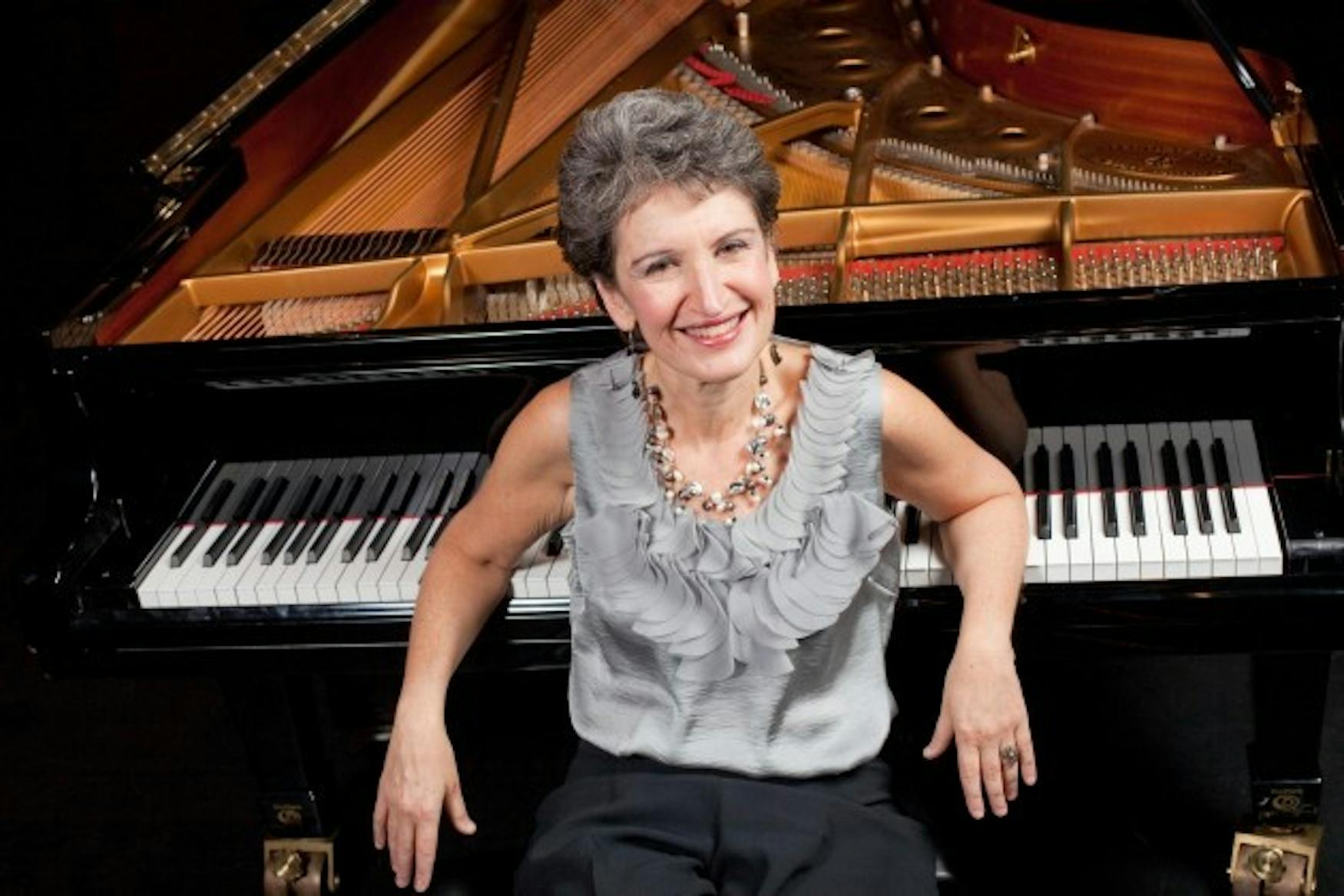Interview Column
This week, justArts sat down with Sally Pinkas, professor of music and artist-in-residence at Dartmouth College, to discuss her upcoming concert in honor of the late Harold Shapero, former Brandeis music professor and composer.
Just Arts: How did you know the former Professor Shapero?
Sally Pinkas: I was here [at Brandeis] as a student, and when I came I wasn't sure whether I was going to be a pianist or a composer, and I was very interested in theory. I had already had a lot of theory. So it was very natural that I would be interacting with all faculty members that had something to do with composition and theory, and, of course, Harold Shapero was then teaching here. So I don't think I've ever taken theory with him, but I was taking some of his graduate seminars, and I think I took his seminar in composition and I have known him for many years.
JA: How did you choose the pieces for Saturday?
SP: It was not a matter of choosing. It was a matter of what was there because the whole idea for this label was to record something that hasn't been recorded before. So whereas the "Four-Hand" piece has been recorded before, these two solo pieces were never recorded. One of them-there's not even evidence of it ever being premiered. We don't know who premiered it. And the sonata, which was premiered, was premiered in '49 so those were the two works that really needed attention. But any case, when you have a CD, you are looking for a certain amount of time that will fill the CD and so these three works seemed like the most logical ones.
JA: Can you give a little insight into his style and some of his influences?
SP: Sure, and that's where this is very, very interesting because he was extremely precocious as a musician. So the early, early works of which the work for "Four-Hands" is ... a very peppy [piece], kind of neoclassical. The other two pieces are quite different and they were surprising to me because he was apparently very much getting involved with the music of Beethoven and other composers. He was thinking of ways of creating large, big structures and so the idioms are quite different. And I did not have any recording to compare notes with. I had to kind of get it from his score and that was kind of fun.
JA: Is there something that you would like the audience to take away from Saturday's concert?
SP: I think it's like coming full circle because he used to be here and when I started this project he was still alive. I talked to him a couple of times. I didn't get to play for him but we had this concert set for when he was still alive. We were hoping that he would be here. So it turned into a memorial event and that is kind of poignant. I was hoping that he would be here to hear these pieces.
JA: What has your experience been like playing in a duo with your husband?
SP: That's a whole other topic! We each have our separate lives, careers and we do solos and other stuff. But a while back, the person who was my programming director at the Hopkins Center [for the Arts at Dartmouth], because ... I'm both a professor but I'm also an artist-in-residence, so I play there regularly, and my boss said, "Why don't you play with Evan?" and at that time we never played together. So 10 years into our being together, we started playing together, and we thought we would just do it for one night but then it went on.
And it's not easy working with one's husband. And me being Israeli, I was pretty rude initially, but I think we worked into a pretty good routine, and we enjoy it. For instance, we travel a fair amount as a duo. I just am making plans; we are going to be playing and teaching in Vietnam in December. We will be doing stuff both [in] Ho Chi Minh City and in Hanoi. And the fun thing is that we love working with each other but then we get to have fun after the concerts. We also get to travel together.
So if you can find a good way of working with your spouse, it's a wonderful thing. I'd much rather tour with him than as a soloist. It's very unpleasant to tour as a soloist because you have to deal with everything by yourself, and it's a lot of tension, and this is a lot more fun.
*




Please note All comments are eligible for publication in The Justice.